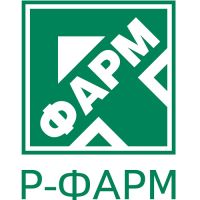Current issue #38, 2016
Healthcare workers and officials seek ways to restrict antibiotic consumption
The Russian Federal Service for Surveillance in Healthcare and Social Development plans to do away with antibiotics selling OTC at pharmacies by 2018, which will inevitably decrease sales of this drug category as most antibiotics are recommended and not prescribed by physicians or are being taken by patients as they wish. The agency’s firm intention is related to the fact that the uncontrolled and sometimes inappropriate use of antibacterials results in the emergence of new pathogenic microbial strains that are antibiotic resistant.
[PharmVestnik # 38, 22/11/2016, p. 1, cont’d p. 9]
Experts discussed clinical trials, drug interchangeability, and government procurement
On November 11th, Baltschug Kempinski Moscow Hotel was the venue of the 3rd All-Russia Congress “Pharmaceutical activities and pharmaceutical manufacturing in the Russian Federation: regulatory environment’2016”. Despite the federal level declared, the event was chamber-scale.
[PharmVestnik # 38, 22/11/2016, p. 2]
New parameters of the cheapest VED control voiced
Dust had hardly settled around disputes of the government initiative to deregulate the cheapest VED prices before two public statements on the issue added fuel to the fire. One of the statements was mouthed by Vice-Premier Olga Golodets, the other – by Minister of Health Veronica Skvortsova. After these statements, it is even less clear how the lower price segment is to be controlled and what kind of support drug manufacturers may count on.
[PharmVestnik # 38, 22/11/2016, p. 4]
Roszdravnadzor joins in the “inspection as a gift” concept
Starting next year, the Russian Federal Service for Surveillance in Healthcare and Social Development (Roszdravnadzor) plans to actively implement a new control activities model. The agency officials assert that reprisals become things of the past and that the inspection logics will lean on three pillars, i.e. prevention, identification, and only after that punishment. It is known that the government control reform will involve all control and surveillance agencies. Following the Ministry of Emergency Situations reporting on the first positive results of the “inspection as a gift” model implementation, Roszdravnadzor states their readiness to start using a risk-oriented approach, too.
[PharmVestnik # 38, 22/11/2016, p. 4]



























Нет комментариев
Комментариев: